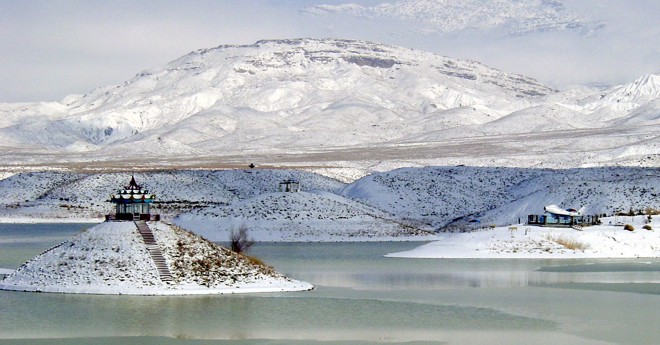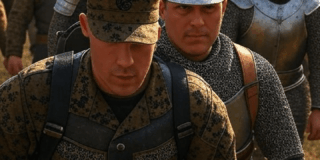 She is a very beautiful young woman, quiet, reserved, cautious and courteous. Her parents have sent her to Australia to undertake tertiary studies, full fee paying tertiary studies. She has no immediate family within these shores, only the family of a cousin more than 1,000 km away where she sometimes visits. Fatima, this industrious young woman with the pale pink head scarf, is isolated in more ways than I care to count.
She is a very beautiful young woman, quiet, reserved, cautious and courteous. Her parents have sent her to Australia to undertake tertiary studies, full fee paying tertiary studies. She has no immediate family within these shores, only the family of a cousin more than 1,000 km away where she sometimes visits. Fatima, this industrious young woman with the pale pink head scarf, is isolated in more ways than I care to count.
I met Fatima recently and shared coffee with her to review how her studies were progressing. She had been offered the opportunity to do further studies, but was worried about the extra time it would take, her ability to support herself and the added strain it would put on her parents to support her from afar, her parents who had sent her abroad to find the better life that they themselves may never know.
“Nobody knows who is doing the bombings,” she tells me over our cups. “The last bomb that exploded just a few weeks ago was at a rally. When people rushed in to help those who were injured, another one was set off outside in the street. Over 100 people died. It’s  just around the corner from my parents home.” She mentions the name of a terrorist group, “Lashkar” she tells me, but it seems who its members may be is an enigma. Eighty-six families who lost one of their own in those blasts refused to bury their loved ones until the government stepped in. “Our graveyards have no space left …” commented one #Hazara protesting the lack of protection for their community.
just around the corner from my parents home.” She mentions the name of a terrorist group, “Lashkar” she tells me, but it seems who its members may be is an enigma. Eighty-six families who lost one of their own in those blasts refused to bury their loved ones until the government stepped in. “Our graveyards have no space left …” commented one #Hazara protesting the lack of protection for their community.
Such is the reality of life for Fatima’s family in Quetta, a city in the province of Balochistan on the border of Paksitan and Afghanistan. They are #Hazara, a minority ethnic group, predominantly Shiite, in Pakistan’s majority Sunni society. Fatima’s parents support her from afar, having another daughter in the United States and trying to arrange for their son to study in Australia as well. They have a good home in Quetta, Fatima tells me, but the government has cut off the electricity and gas. With temperatures sinking to eight degrees below zero, the homes in Quetta may be fortunate to receive 4 hours of heating on a single day, if at all. I ask my coffee companion why the fuel sources have been cut. She shrugs her shoulders, says something about the government saying the Quetta does not pay enough, she really does not know.
I have lived through Belfast winters when temperatures hit similarly low milestones on a daily basis and the wind chill factor was 7 to 10 degrees lower. I cannot imagine walking home from Donegall Square to the University district knowing that when I arrived home there would be no heating, no lighting, only coal or sticks or perhaps a gas bottle with which to create a fire to boil a pail for water for my brew. For me, there was the luxury of a friend’s home halfway along my walk home, place to have hot chocolate and thaw by the fire before heading back into the ice. The searing heat of Australia’s current heat wave in which Fatima staunchly dresses in a thick long sleeved shirt regardless of her own comfort levels is an irony I find confounding; whilst her parents and brother freeze, she is uncomfortably warm outside the workplace walls.
I wonder at the world that hears so little about the political machinations that deprive a people, a whole region, of the basic necessities in life. Media plays one side or another of the stories, feeding a fear of terrorism or a particular social or religious group, but rarely balancing the motives of the majority governors. It was the same with Northern Ireland, where so much was heard about one side of the argument, but so little of what other groups said or did went unreported on the international stage. I learned then not to trust the single sided news reports. There’s nothing quite like living with a people to comprehend what cannot be put into words.
Fatima lives with the dream of feeling her mother’s hugs again. As Christmas came and we all headed to our respective homes for the Yuletide break, I hugged many friends and staff. I received gifts from two Muslim men with whom I work and we break fast with them at the end of their religious celebrations such as Eid. For Fatima, the hug was almost too much; it was the first she’d received since leaving her family to come study in Australia and my heart broke for her.
Today as we commemorate the day that changed so many lives, for better or worse, perhaps we could spare a thought for those come here to escape the same racism and xenophobia that has decimated the indigenous culture in this country. This nation that is so proud of its multi-racial heritage, but at the same time promotes a narrow view of what it is to be Australian, has at it’s doors the futures of people like Fatima who wish nothing more than to live in the sort of peace that white Australians take for granted. In speaking with me, in hearing of the Stolen Generations, Fatima understands what it is to be ‘other’. She feels for the dispossession of the indigenous Australians and has the same hopes as them – a life free of violence, where her family can live together and she can feel the hugs of her mother. In wishing everyone who calls this country their homeland peace today, I also welcome the new comers who, as the Chinese, Greeks, Italians, Vietnamese, Persians, Nigerians and many more before them have been, are the workers, neighbours and restaurant owners in our cities and towns. To do anything else would be, to use a term I distinctly dislike but nonetheless seems appropriate just now, un-Australian.



Hope God smiles on Fatima and her family and grants her all she seserves.
How many of the trouble makers at ACT Treasury were South-East Asian queue jumpers???
Fatima deserves much, Mahmud Ahsan. She is a good and respectful daughter and studies very hard. I hope I have the chance to help her again. I would value both her friendship and her employ.